Jersey proudly rejects calls to allow discrimination against gay couples
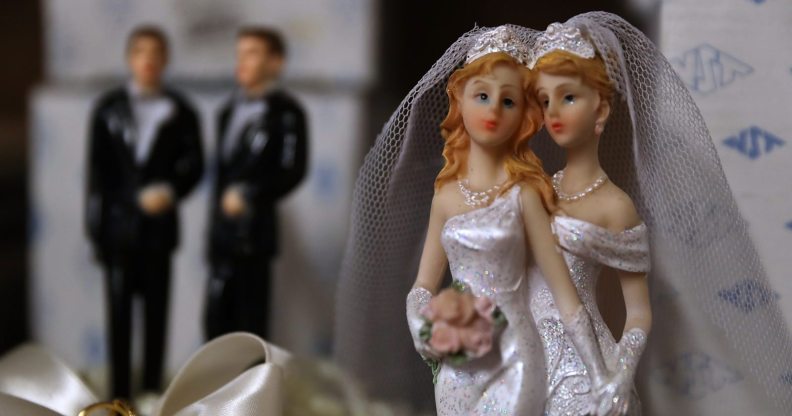
(Justin Sullivan/Getty Images)
Jersey’s parliament has voted down a law that would have legalised discrimination against same-sex couples.
Lawmakers had proposed an amendment to the country’s discrimination legislation that would hand traders the right to refuse goods and services to gay couples who were marrying based on “religious beliefs”.
The measure was rejected by 40-5 Thursday after hours of parliamentary debate.
Pressure was piled on to legislators after more than 5,000 people signed a petition by charity Liberate to block the measure.
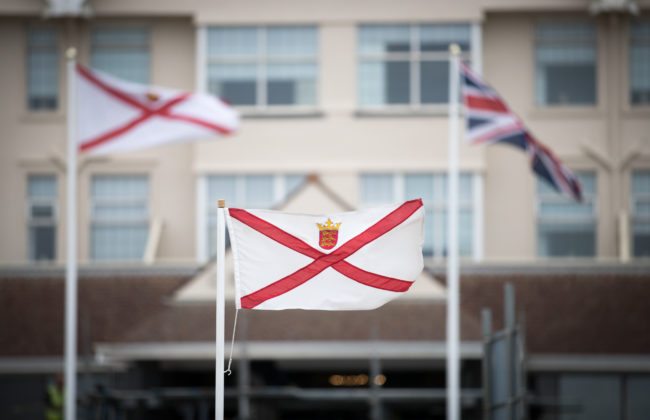
The Jersey flag flutters in the wind in St Helier (Getty)
The British Crown Dependency approved same-sex marriage in 2015, but is yet to hold its first unions as the legislation is bogged down in amendments.
The day’s debate heard emotional speeches from the island’s politicians against the proposed change – many asking why they had the right to approve discrimination against a minority group.
According to ITV reporter Gary Burgess, one politician even gave an apology for voting against same-sex marriage more than two years earlier.
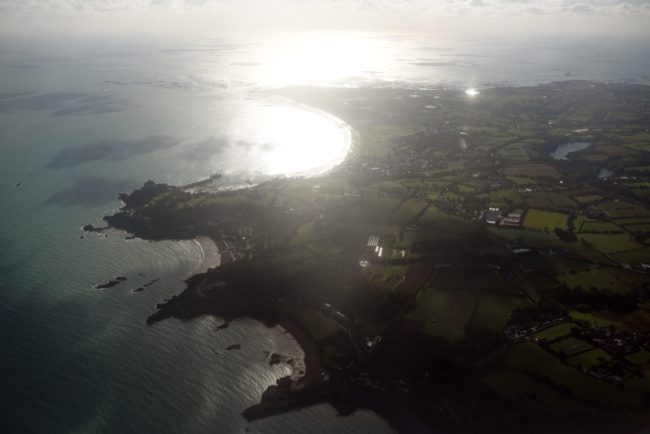
The British island of Jersey(Getty)
Constable Le Suer said: “I was wrong to oppose same-sex marriage back in 2015. I apologise to anybody I offended.
“What right have I to object to a loving, monogamous relationship? I am deeply uncomfortable with this conscience clause. It will be socially divisive.”
Assistant minister Scott Michael Wickenden said: “What In Christian teaching would prevent a believer partaking in same-sex marriage? In modern Christianity this should not be a problem.”
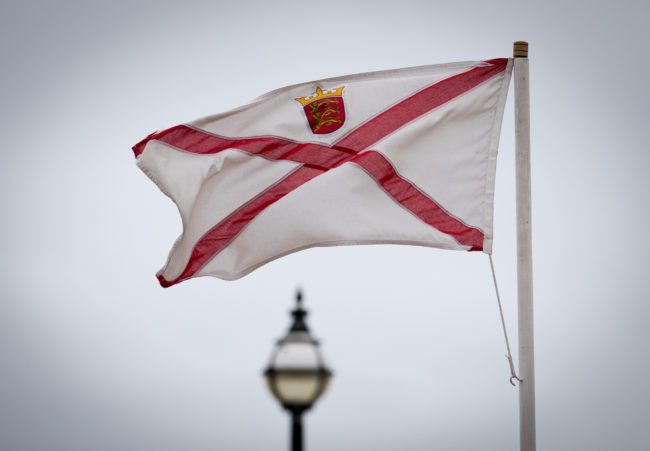
Jersey (Getty)
Another senator, Philip Ozouf said: “I would ask Members to consider the implications of legalised discrimination. Where will this end? This is a slippery slope. We should not go there.”
Five members of parliament voted in favour of the amendment allowing for discrimination.
The five supporting the tolerance clause are:
-Senator Sarah Ferguson
-Constable Le Troquer
-Constable Taylor
-Deputy Le Fondre
-Deputy Johnson
— Gary Burgess (@GaryBurgessCI) February 1, 2018
The first marriages are not expected to be implemented until later in 2018, once all such amendments and debates have been worked through.
“The delay impacts people’s lives directly,” Vic Tanner-Davy, from Jersey’s LGBT group Liberate said last year.
“As anyone who has arranged a wedding will know it takes about a year in the planning to ensure that venues, caterers, bands, marquees etc are booked.”
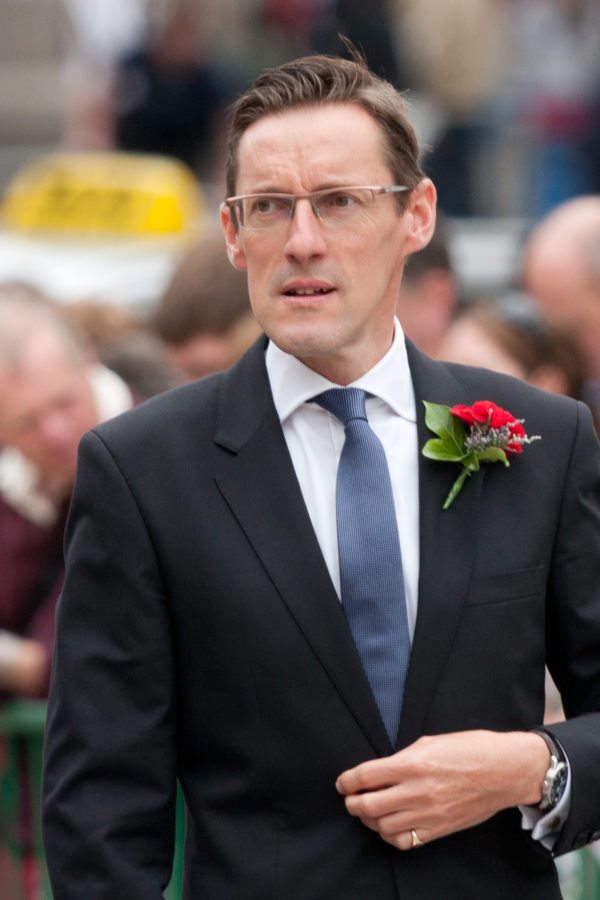
Chief Minister Ian Gorst
Jersey’s Corporate Services Scrutiny Panel proposed the amendment allowing discrimination against same-sex couples in wedding services.
Two religious leaders passionately urged parliament to reject the pro-discrimination clause before today’s debate.
Revd Graeme Halls, Superintendent of the Methodist Circuit in Jersey said: “This is a debate about how we ensure all of our community has equal rights and responsibilities, and that means that one group does not and cannot have the right to discriminate against another, and certainly not for that to be enshrined in law.
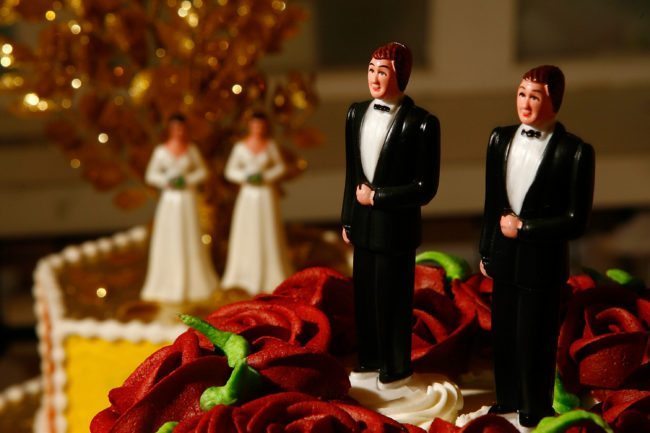
Same-sex wedding cake (Getty)
“Surely we seek a world where all are respected, all are shown equal care, and all this because, whether we have faith or not, we are one humanity, and for those with faith, we believe all are equally loved by God, made in God’s image, one Body, many parts.”
A member of the Church of England’s General Synod, Jayne Ozanne, said: “Anything that seeks to divide and separate us, that looks to demonise one group as the ‘other’ can only ever cause pain and suffering, particularly for the most vulnerable in our society.
“My prayer would be that we build a society that knits us closer together, that we enshrine the values that make us thrive and that we seek to embrace the diversity and equality of all.
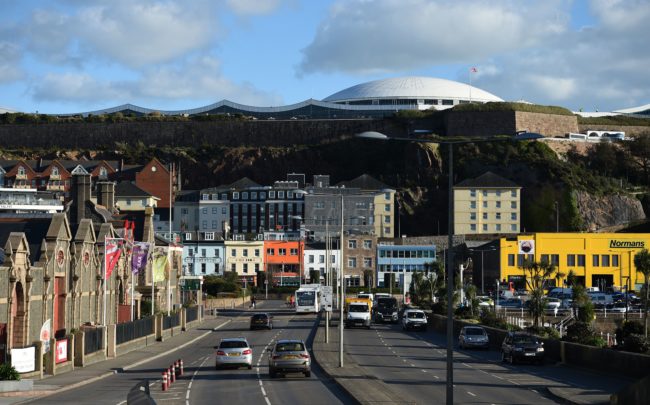
Jersey (Getty) J
“To do otherwise would be to create a society that is defined by its divisions, which builds walls rather than bridges, and so opens the door to further discrimination against those who are our neighbours.”
Jersey makes its own law through an independently elected parliament, but delegates foreign affairs and security to the UK. It is not a full member of the European Union.

